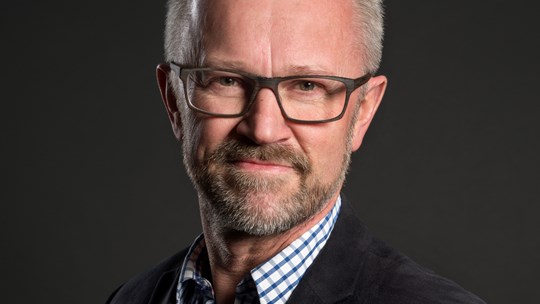Has your union representative made a difference for you and your colleagues? Then you can say thank you by nominating them for the Union Representative of the Year award.
News
3-year collective agreement in place for IDA’s 9,500 state employees

Carsten Eckhart is IDA’s representative in Akademikerne’s negotiating committee
On Sunday we reached a settlement about a new 3-year collective agreement in the governmental area.
As expected, the negotiations were challenging and marked by the corona crisis and the current economic situation in Denmark.
While the economic framework for the settlement does reflect these circumstances, the agreement has secured agreed 4.42 per cent salary increases for IDA’s governmentally employed members over the next three years. This increase is higher than the expected price development, and therefore a positive real salary.
The agreement contains many favourable elements, for instance for universities and the educational sector, as well as for seniors. The new organisations in Akademikerne (The Danish Confederation of Professional Associations) are included in the collective agreement.
It has also been agreed to continue the governmental competency fund, so our members still have the chance to seek funding for supplementary and further education.
“Unfortunately, there was no agreement about establishing a free-choice account similar to that found in the private labour market, i.e. a scheme giving employees the ability to choose freely between salary, pension, and free time. This was a big wish among our members, and we are naturally frustrated that we were not able to address this or the other wishes for increased flexibility in the individual working life of our members,” says Chairman of IDA Public and Chief negotiator for IDA, Carsten Eckhart Thomsen.
What is OK21?
The collective bargaining negotiations in 2021, known as OK21, is a negotiation process about pay and conditions on the labour market.
It is an essential part of the Danish Model of the labour market that conditions are agreed to between labour unions like IDA and employer's organisations.
Since conditions like minimum wage and working hours are not politically decided, strong organised labour movements form the basis for deciding on conditions that are beneficial to all.
For IDA, it was a central claim in the negotiations to secure a salary development for publicly employed members which is parallel to that of the private sector.
IDA expected employers to agree to a result which could ensure this by agreeing to a positive salary development for our members and all other public employees. We succeeded in ensuring that.
The next step is the regions and municipalities
A new agreement is being negotiated for all public areas, i.e., both the state, municipalities, and regions.
It is customary to reach a settlement for the state area first, which will set the framework for the agreements for municipalities and regions. The negotiations for these are expected to be over before the end of February.
When all settlements have been negotiated, they must be approved through referendums in the individual unions – including IDA – before the new changes can come into effect on 1 April.
With Saturday’s settlement, the road to agreement appears a lot smoother than four years ago when the negotiations almost led to a conflict.